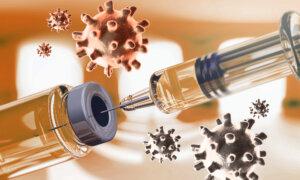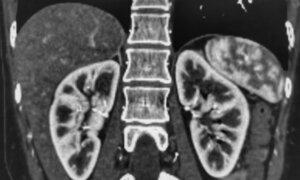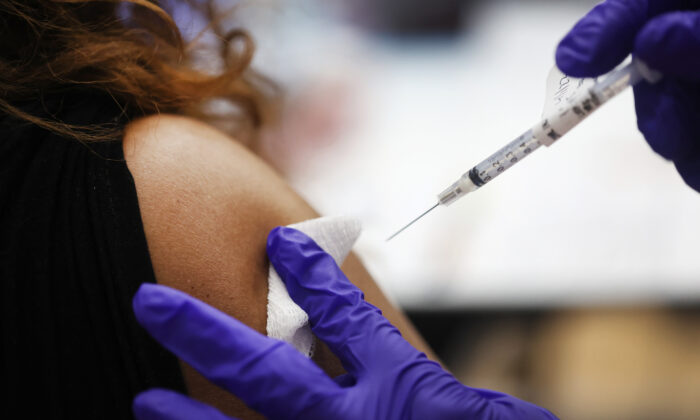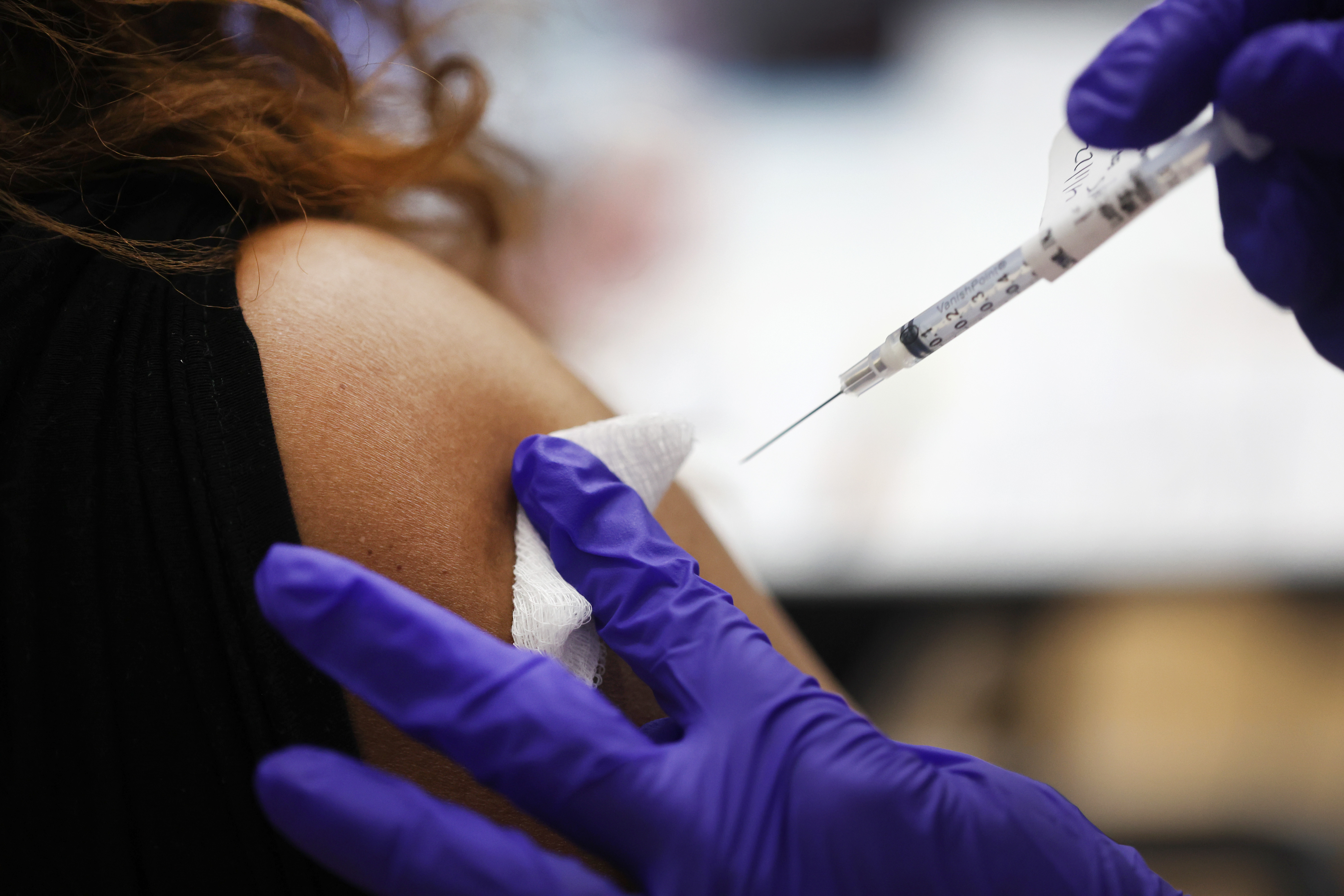New Study Reveals mRNA COVID Boosters May Worsen Diabetes
Diabetes patients had reduced insulin secretion and increased risks of cardiovascular complications after taking booster vaccines
Taking mRNA COVID-19 booster shots worsens diabetes in prediabetic and diabetic individuals, according to a new study which found that the jab “impairs glucose control.”
Triglycerides, a fat lipid in the blood that increases risk of heart disease at high levels, were found to be elevated. The triglyceride-glucose index (TyG), a tool to identify the risk of diabetes and cardiovascular disease, was also high.
“About 61.1 percent of diabetic subjects had impairment of insulin sensitivity according to the HOMA-IR index and about 66.7 percent of diabetic subjects had increased risks of cardiovascular complications according to the TyG index,” the study said.
As to how COVID-19 vaccines can increase the risk of Type 2 diabetes, the study authors speculated that this could be due to the vaccine affecting insulin signaling in a way that leads to “reduced insulin secretion and insulin resistance.”
Another explanation could be the spike protein induced by the vaccine, which is known to trigger systemic immune responses and the production of IgG antibodies. This can “affect the function of insulin signaling pathways and lead to insulin resistance.”
“We also noticed that the insulin sensitivity and triglyceride levels were only affected by boosters of COVID-19 in pre-diabetic and diabetic subjects but not healthy controls in our present study, suggesting subjects with impaired glucose tolerance are recommended to take extra care of their blood glucose homeostasis after COVID-19 vaccination,” the study said.
Diabetes Risk
Analysis revealed there was a positive correlation between HOMA-IR index and a series of immune responses in the study participants following COVID-19 vaccination, including changes in the spike protein.
Researchers found that the levels of spike protein and immunoglobulin G (IgG) antibodies had “significantly increased” post vaccination in the subjects.
“These results suggest that the booster shot of mRNA COVID-19 vaccine impairs glucose control and aggravates insulin resistance in human subjects with type 2 diabetes,” the researchers wrote.
Authors declared two sources of funding: Key-Area Research and Development Program of Guangdong Province, China, and Health@InnoHK Initiative Fund, NSFC Excellent Young Scientist Scheme, Innovation and Technology Support Programme, and General Research Grants that were all received from the Hong Kong SAR Government.
The authors declare no competing interests.
The researchers also conducted mice studies to look at the “inhibitory action of COVID-19 vaccination on glucose control.” The mice injected with the Pfizer vaccine on a weekly basis were found to exhibit “impaired glucose tolerance” after the fourth dose.
Serum triglyceride levels were identified to be “significantly elevated,” which indicated “an increased risk of cardiovascular diseases and metabolic disorders.” The mice showed similar immune responses post vaccination, like elevated spike protein levels.
Researchers concluded that the glucose intolerance in mice post COVID-19 vaccination was mediated by “impairment of insulin sensitivity” and not due to any impairment in insulin secretion in the mice.
Diabetes Drug May Help
The study tested a diabetes drug called metformin which was found to lessen the side effects of the COVID-19 vaccine and reduce the incidence of post-acute COVID-19 syndrome (PACS). It found that metformin alleviated insulin resistance in vaccinated mice and also “rescued the impaired insulin signaling in mice.”
These effects were triggered while the drug did not affect the protective effects of the COVID-19 vaccine, it stated.
“These results suggest metformin can be used as an adjunctive treatment for maintaining glucose control after COVID-19 vaccination.”
“The present case suggests that COVID-19 RNA-based vaccines might trigger the onset of type 1 diabetes, even in subjects without prior histories of diabetes,” the study said.
Despite these risks, organizations such as the American Diabetes Association (ADA) claim that COVID-19 vaccination “is an important tool to protect the health and safety of Americans.”
According to the ADA, there were more than 38 million Americans with diabetes in 2021, accounting for over 11 percent of the total population. Diabetes was the eighth-leading cause of death that year, mentioned as the “underlying cause” in 103,294 death certificates.
Racially, American Indian/Alaska Native adults have the highest proportion of diabetes at 13.6 percent. Non-Hispanic white adults had the lowest at 6.9 percent. The total cost of diagnosed diabetes in the United States was $412.9 billion in 2022.
“After adjusting for population age and sex differences, average medical expenditures among people with diagnosed diabetes were 2.6 times higher than what expenditures would be in the absence of diabetes.”
This article has been archived for your research. The original version from Epoch Times can be found here.






